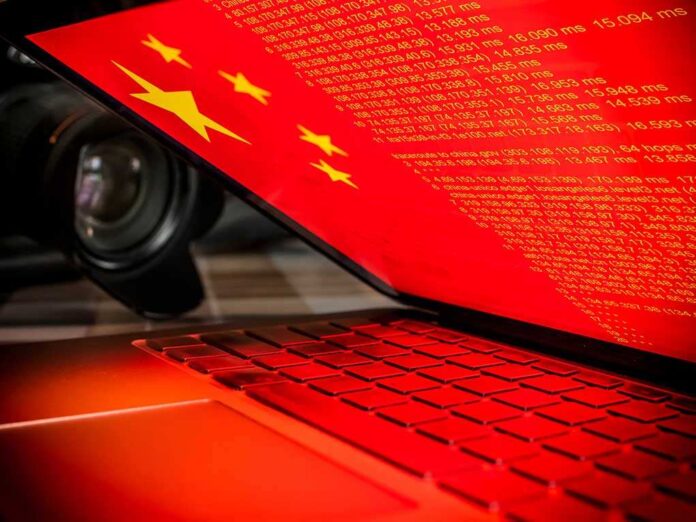
Over 68 major American companies—including Coca-Cola, Starbucks, and Walmart—have been implicated in a vast Chinese state-sponsored slavery scheme that fuels the global critical minerals supply chain, exposing these corporations to severe legal and ethical consequences.
Key Takeaways
- A 77-page report by Global Rights Compliance reveals Western companies are linked to forced Uyghur labor in China’s critical minerals industry, affecting titanium, lithium, beryllium, and magnesium supply chains.
- 68 international corporations including household names like Coca-Cola, Starbucks, and Walmart are potentially sourcing materials from forced labor operations in the Xinjiang Uyghur Autonomous Region.
- China leads global production for 30 of the 44 minerals deemed critical by the U.S. government, with the Uyghur region experiencing significant export growth to American and British markets.
- The findings could strengthen enforcement of the U.S. Uyghur Forced Labor Prevention Act and influence new EU regulations aimed at eliminating forced labor from supply chains.
- Only one implicated company, BASF, has publicly responded to the allegations, denying current business relations with the Chinese firms named in the report.
State-Sponsored Slavery in China’s Mineral Industry
An extensive 18-month investigation has uncovered a disturbing reality behind China’s dominance in critical mineral production. The report, compiled using Chinese government records, academic studies, and shipping data, identifies 77 minerals sector companies in the Uyghur region participating in state-imposed labor transfer programs. These programs effectively constitute modern slavery, with severe consequences for those who refuse participation. The minerals involved—titanium, lithium, beryllium, and magnesium—are essential components in products ranging from household goods to aerospace technology, making this issue relevant to virtually all global manufacturing.
“Western companies in sectors ranging from household goods to nuclear energy are exposed to state-imposed forced labor in the Uyghur region through critical mineral supply chains,” said Caroline Dale
Major American Brands Implicated
The investigation specifically names 68 international corporations potentially exposed to goods sourced from the Xinjiang Uyghur Autonomous Region (XUAR). Household names like Coca-Cola, Costa Coffee, Starbucks, and Walmart appear on this list, raising serious questions about corporate responsibility and supply chain due diligence. Only BASF has responded to the allegations, denying current business relations with the implicated Chinese firms. The silence from other major corporations speaks volumes about the difficulty of tracing supply chains and the reluctance to acknowledge potential complicity in human rights abuses.
“Companies operating throughout the critical minerals industrial chain in the Uyghur region rely heavily on a government-backed network of state-imposed forced labor schemes,” said Caroline Dale
China’s Strategic Mineral Dominance
The report highlights China’s overwhelming control of global critical mineral production, processing, and distribution. China currently leads global production for 30 of the 44 minerals deemed critical by the U.S. government, with significant contributions from the Uyghur region. For instance, 11.6% of the world’s titanium sponge is produced in the XUAR, and the region provides over 50% of China’s domestic beryllium supply. China produces 92% of the world’s raw magnesium, with a substantial portion coming from Xinjiang. This concentration of production creates not only human rights concerns but also strategic vulnerabilities for Western nations dependent on these materials.
“Mineral mining and processing in (Xinjiang) rely in part on the state’s forced labor programs for Uyghurs and other Turkic people in the region,” the report said,” according to Netherlands-based Global Rights Compliance.
Legal and Market Implications
The findings have significant implications for international trade regulations and corporate accountability mechanisms. The report could strengthen enforcement of the U.S. Uyghur Forced Labor Prevention Act and influence the development of the EU Forced Labor Regulation. Companies found to be sourcing from these tainted supply chains could face import bans, legal penalties, and significant reputational damage. This represents a new front in President Trump’s efforts to confront China’s unfair trade practices and human rights abuses. The report specifically identifies Xinjiang Nonferrous, already sanctioned by the U.S., as a key player in these forced labor schemes.
“The report found 77 Chinese suppliers in the titanium, lithium, beryllium and magnesium industries operating in Xinjiang. It said the suppliers are at risk of participating in the Chinese government’s ‘labor transfer programs,’ in which Uyghurs are forced to work in factories as part of a longstanding campaign of assimilation and mass detention,” according to Netherlands-based Global Rights Compliance.
China’s Denial Amid Mounting Evidence
Despite the comprehensive evidence presented in the report, Chinese officials continue to deny the allegations. Foreign Ministry spokesperson Lin Jian dismissed the findings as “a complete lie fabricated by individual anti-China forces.” This denial contradicts not only the extensive documentation in the Global Rights Compliance report but also the 2022 United Nations report suggesting China may have committed crimes against humanity in Xinjiang. With over one million Uyghurs reportedly detained in what China euphemistically calls “re-education” facilities, the evidence of systematic oppression continues to mount, undermining Beijing’s credibility on the international stage.
“China’s Xinjiang has never forced anyone to transfer employment. The so-called ‘forced labor’ in China’s Xinjiang region is a complete lie fabricated by individual anti-China forces,” said Lin Jian
Path Forward for Corporate Accountability
The report urges immediate action from both corporations and governments. Companies are advised to thoroughly trace their supply chains to eliminate forced labor links, while governments are called upon to enact and enforce stronger legislation ensuring accountability. This situation underscores the need for diversification of critical mineral sources and heightened due diligence in international trade. As the U.S. under President Trump continues to prioritize both economic security and human rights, this report provides valuable ammunition for addressing China’s systematic abuses while protecting American industries and values.












